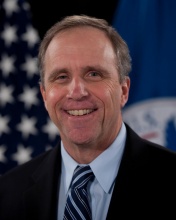

The Unified Shared Services Management Office will hold market research days in February to understand what is possible for financial shared services.
The challenges around shared services center as much on policy as they do on implementation. The government’s inability to update policies, some dating back to 1933, combined with the ever-difficult industry and agency communications have proved to be too much for a many shared services projects — see the Homeland Security Department as the most recent example, and several industry sources say the Veterans Affairs Department’s move to the Agriculture Department’s National Finance Center also may be on the rocks.
And this is why the latest attempt by the Trump administration to move agencies toward financial management shared services must address both sides of the equation.
The General Services Administration’s Unified Shared Services Management Office’s initiative to understand what is possible in the financial services market is part of its initial plan to address the industry-government communications challenges.
But without addressing the policy side at the same time, particularly the 2013 Office of Management and Budget memo on shared services, this effort is, once again, on the slippery slope toward failure.
The 5-year-old memo calls on agencies to perform an alternatives analysis of both federal and commercial shared services providers.
“Therefore, to leverage existing investments and infrastructure at FSSPs, agencies must consider, as part of their alternatives analysis, the use of a FSSP with respect to all new agency proposals for core accounting and mixed system upgrades,” the memo states. “Analysis should not be limited only to an evaluation of commercial SSPs. Instead, the preferred approach is for an agency to evaluate solutions offered by both FSSPs and commercial SSPs as part of a robust market research process.”
Experts say until that memo is rescinded or at least clarified, agencies tend to interpret that to mean they should consider federal shared service providers first, leaving industry in a support only role.
And it’s for this reason that GSA’s market research effort in February is facing more of an uphill challenge than it needs to as vendors may be hesitant to take part in industry day. GSA released a request for information on Jan. 17, looking for vendors to come demonstrate the latest in financial management services.
“This is an open invite for industry if they have a solution that meet our requirements,” said Beth Angerman, the executive director of the Unified Shared Services Management Office, during a press teleconference last Thursday. “We are in the research phase to better understand if there is a better, more prevalent role industry can play or not, based on the technologies and how they’re evolving. If industry is keeping up, it’s our opportunity to understand what opportunities they have and they can influence the path forward.”
Angerman said that does include any potential changes in policy.
“Industry can help develop the strategy going forward, so it will be advantageous for them to participate,” she said. “We have to learn from industry why we need to make a case for change.”
OMB is in the mood to relook at and update or get rid of policies altogether. So industry’s feedback on the current capabilities and trends is crucial.
For the industry day, first GSA is hosting a 90-minute virtual general session on Feb. 8 where the government “will discuss the current financial system solutions’ challenges in the federal government and the desired future state.”
Then, from Feb. 13 to Feb. 15, GSA will hold live demonstration days in Washington, D.C.
“We will have federal government representatives, including people from the CFO Council, the CIO Council and other representatives from agencies,” Angerman said. “In the RFI, we are asking industry to help us understand their solutions and how are they different than what the government has purchased and used before. How do we meet the expectations laid out by the administration in terms of understanding what software-as-a-service capabilities are available?”
The deadline to register for the live demonstration days is Jan. 31.
In the RFI, USSM outlined six parameters, including mobile friendly interfaces and the ability to support 2.5 million users, and five other capabilities, including the ability to adapt to changing requirements and success stories with other government or private sector customers, that it wants vendors to address in their responses and industry day presentations.
The fact that the USSM is even looking at potential private sector opportunities is a huge change from just a few years ago. Under the Obama administration, industry was openly relegated to support efforts and federal shared service providers were front and center.
But a combination of agency demand, continued struggles by federal providers around implementation and funding and the continued emergence of cloud computing forced the USSM to begin looking for other options.
As the Trump administration took office, the expansion of opportunities for the private sector grew. Both the cybersecurity executive order and the IT modernization strategy called on agencies to consider shared services in an assortment of areas.
Angerman said the market research and demonstration days will help the USSM decide what its next steps are and the role industry can play.
While the USSM is taking the first step for financial management, it’s further ahead with its plan to modernize how agencies receive payroll services.
OMB centralized the payroll providers across four federal providers in 2009.
But the USSM issued a draft request for quotes in December with an eye toward modernization using software-as-a-service. Comments on the draft RFQ closed Jan. 22.
Angerman said the financial management effort is different from the payroll initiative.
History and experience have shown that these shared services efforts are steeped in challenges so while the USSM has been spending the last few understanding what they are, unless OMB acts to make some specific updates, shared services will continue to face the same problems as previous attempts.
Copyright © 2024 Federal News Network. All rights reserved. This website is not intended for users located within the European Economic Area.
Jason Miller is executive editor of Federal News Network and directs news coverage on the people, policy and programs of the federal government.
Follow @jmillerWFED



